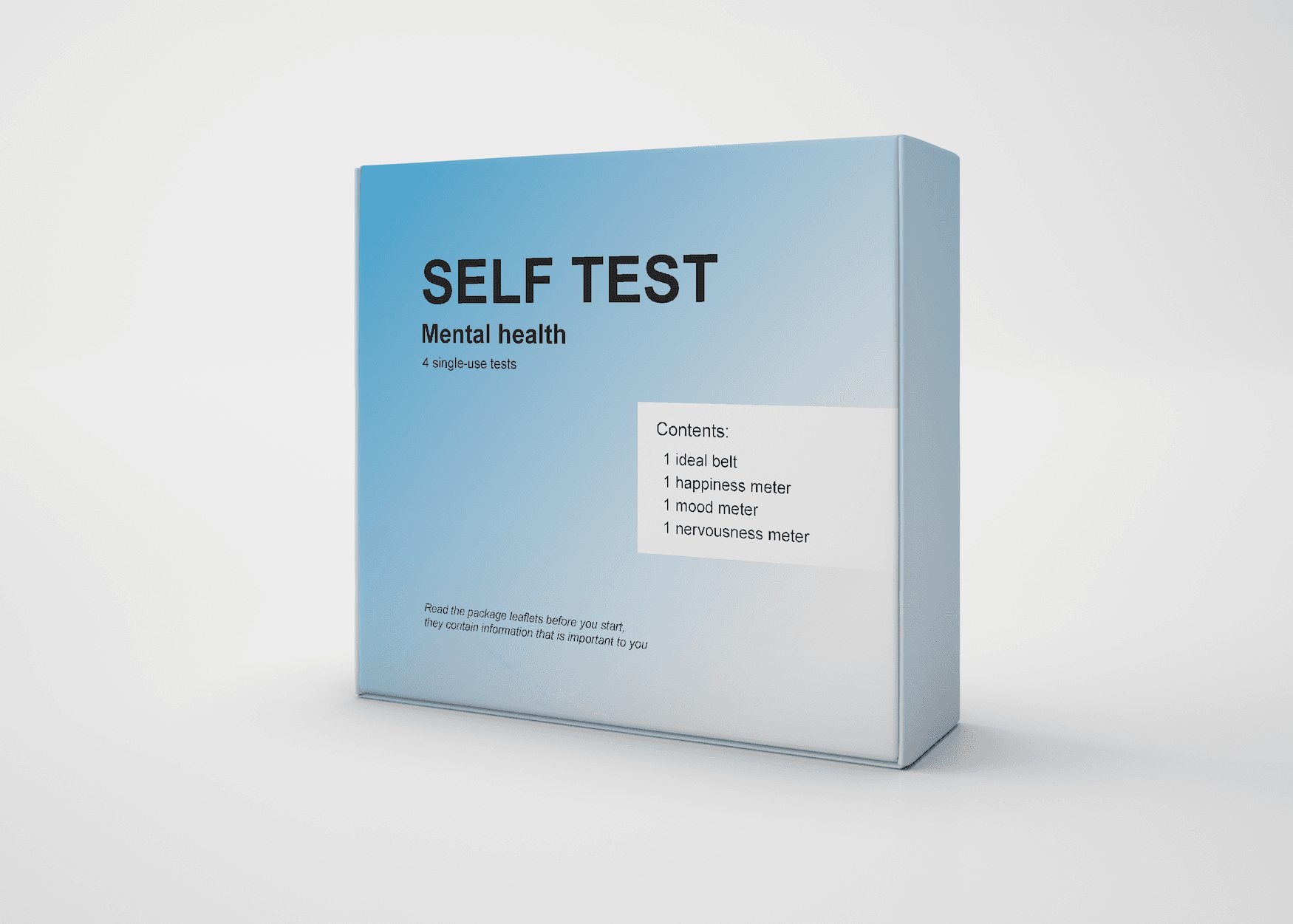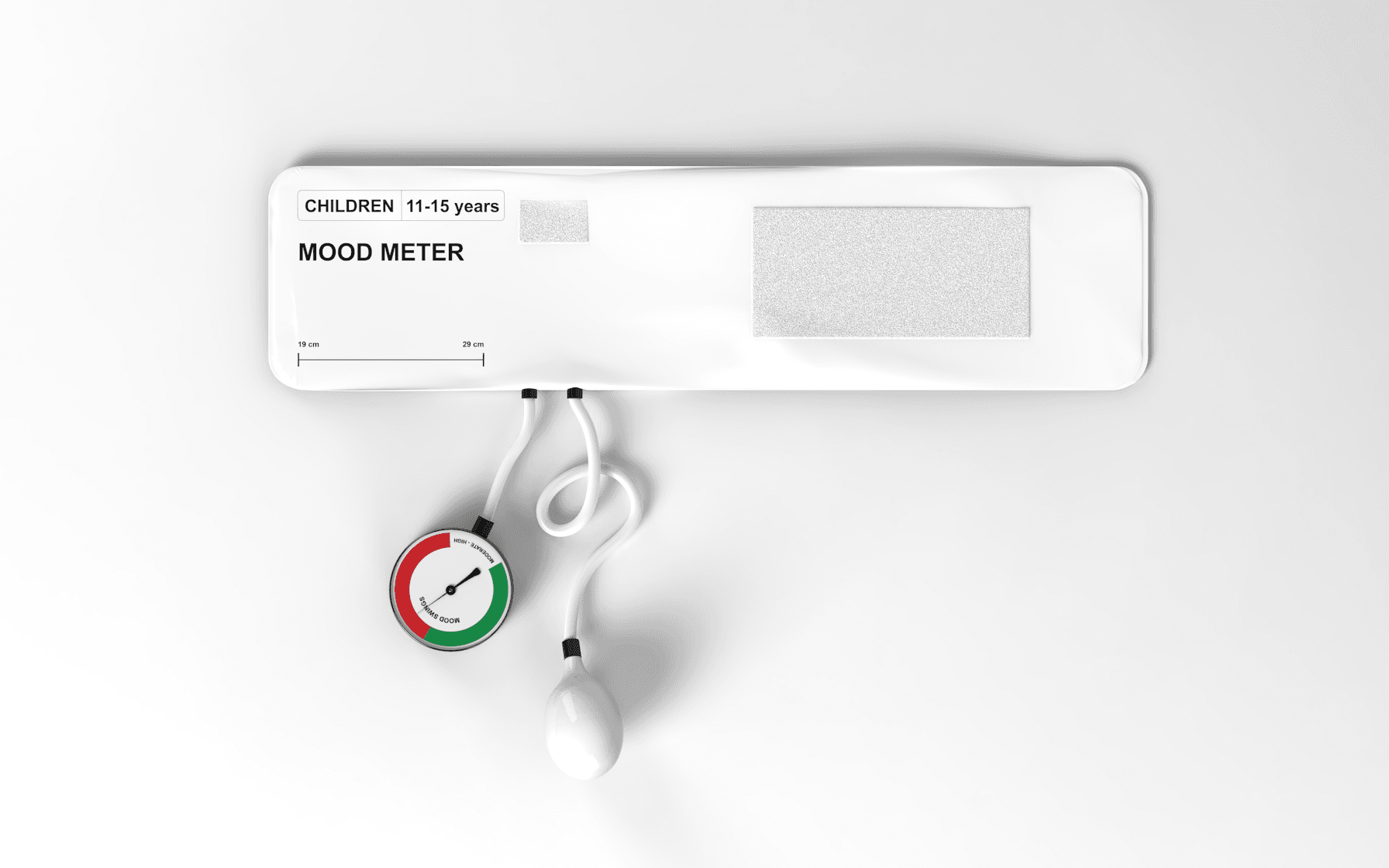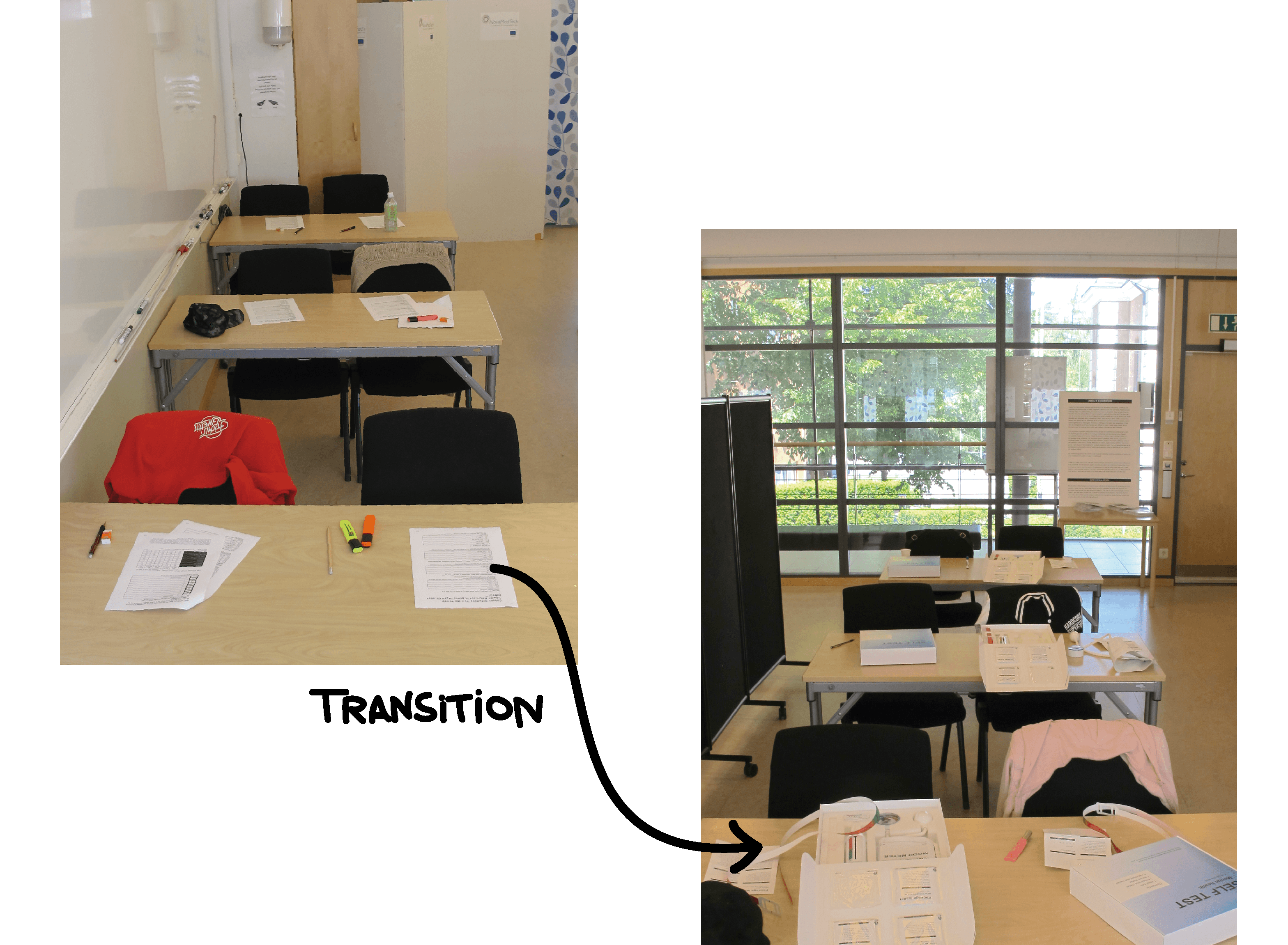a feminist approach to medical screening
research project with Halmstad University
The research programme A Feminist Approach to Medical Screening contains a number of research projects through which normative aspects of screening practices are investigated.
Within the interdisciplinary research team my role as a designer was to make prototypes for the research group. The prototypes that I created were both digital, ranging from design mockups and packaging design, to hands-on physical prototypes like the Self Test-packaging and all the test equipment in it.

The research programme A Feminist Approach to Medical Screening contains a number of research projects through which normative aspects of screening practices are investigated. Today, there are several methods and instruments for measuring, estimating, evaluating and assessing phenomena such as health, happiness, quality of life and well-being. Health surveys can help shape our understanding of ourselves and our environment.

The mood meter prototype: The mood meter meter visualise how questionnaires about emotional experiences such as ”feeling low” or ”nervous” are given medical terms. What are the consequences when unavoidable parts of life are transformed into symptoms of mental illness? Does it obstruct the view of other explanations than just the medical ones?
The exhibition at Linköping University Hospital examines (using norm-critical design as a method) how questionnaires such as screening practice contribute toThe exhibition at Linköping University Hospital examines (using norm-critical design as a method) how questionnaires such as screening practice contribute to creating, maintaining and reproducing norms. Our aim was to create a school like context where it looks like the pupils just left the classroom to go on a break.

In the exhibition, some of the questions in the survey ”Health Behaviour in School-Aged Children (HBSC)” have been given a new physical form inspired by medical measuring tools. The new design focuses on the performative and normative role of health questionnaires, which is visualised as side effects in the package leaflets. By transforming parts of the survey (in)to medical measuring tools the perception of surveys as only ”questions on a piece of paper” is challenged.
*HBSC is a school-based survey with data collected through self-completion questionnaires administered in the classroom. The international standard questionnaire enables the collection of common data across participating countries and thus enables the quantification of patterns of key health behaviours, healthindicators and contextual variables. The HBSC collects data every four years on 11-, 13- and 15-year-old boys’ and girls’ health and well-being, social environments and health behaviours. www.hbsc.org/
Projekt Team:
Emma Börjesson; Project Leader, Halmstad University. Anna Isaksson; Associate Professor Sociology, Halmstad University. Karin Ehrnberger; Doctor of Design , Royal Institute of Technology. Hajar Sadequi; Designer. Malin Björklund; Designer
Financiers: The Swedish Research Council (through Linköping University)